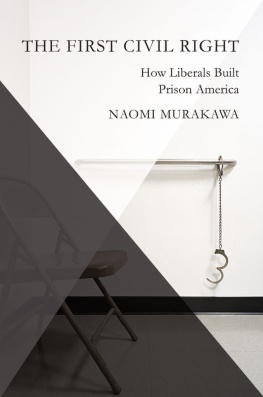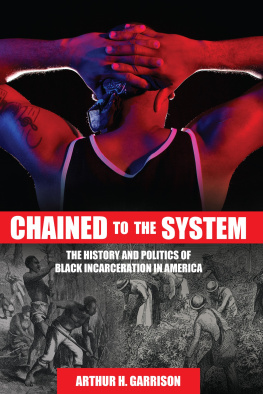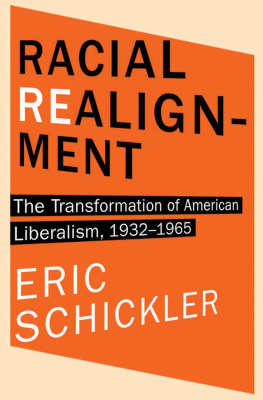The First Civil Right
Studies in Postwar American Political Development
Steven Teles, Series Editor
Series Board Members:
Jennifer Hochschild
Desmond King
Sanford Levinson
Taeku Lee
Shep Melnick
Paul Pierson
John Skrentny
Adam Sheingate
Reva Siegel
Thomas Sugrue
The Delegated Welfare State: Medicare, Markets, and the Governance of Social Policy
Kimberly J. MorganandAndrea Louise Campbell
Rule and Ruin: The Downfall of Moderation and the Destruction of the Republican Party, From Eisenhower to the Tea Party
Geoffrey Kabaservice
Engines of Change: Party Factions in American Politics, 18682010
Daniel DiSalvo
Follow the Money: How Foundation Dollars Change Public School Politics
Sarah Reckhow
The Allure of Order: High Hopes, Dashed Expectations, and the Troubled Quest to Remake American Schooling
Jal Mehta
Rich Peoples Movements: Grassroots Campaigns to Untax the One Percent
Isaac William Martin

Oxford University Press is a department of the University of Oxford. It furthers the Universitys objective of excellence in research, scholarship, and education by publishing worldwide.
Oxford New York
Auckland Cape Town Dar es Salaam Hong Kong Karachi
Kuala Lumpur Madrid Melbourne Mexico City Nairobi
New Delhi Shanghai Taipei Toronto
With offices in
Argentina Austria Brazil Chile Czech Republic France Greece
Guatemala Hungary Italy Japan Poland Portugal Singapore
South Korea Switzerland Thailand Turkey Ukraine Vietnam
Oxford is a registered trademark of Oxford University Press in the UK and certain other countries.
Published in the United States of America by
Oxford University Press
198 Madison Avenue, New York, NY 10016
Oxford University Press 2014
All rights reserved. No part of this publication may be reproduced, stored in a retrieval system, or transmitted, in any form or by any means, without the prior permission in writing of Oxford University Press, or as expressly permitted by law, by license, or under terms agreed with the appropriate reproduction rights organization. Inquiries concerning reproduction outside the scope of the above should be sent to the Rights Department, Oxford University Press, at the address above.
You must not circulate this work in any other form and you must impose this same condition on any acquirer.
Library of Congress Cataloging-in-Publication Data
CIP record is available from the Library of Congress
ISBN 9780199892785 (hbk)
ISBN 9780199892808 (pbk)
eISBN 9780199380725
CONTENTS
| ABA | American Bar Association |
| ABF | American Bar Foundation |
| ACLU | American Civil Liberties Union |
| ALI | American Law Institute |
| BOP | Bureau of Prisons |
| CBC | Congressional Black Caucus |
| COPS | Office of Community Oriented Policing Services |
| CRC | Civil Rights Congress |
| CORE | Congress of Racial Equality |
| DEA | Drug Enforcement Administration |
| DOJ | U.S. Department of Justice |
| FBI | Federal Bureau of Investigation |
| FDPA | Federal Death Penalty Act of 1994 |
| ICE | Immigration and Customs Enforcement |
| IIRIRA | Illegal Immigration Reform and Immigrant Responsibility Act of 1996 |
| LEAA | Law Enforcement Assistance Administration |
| NCCD | National Council on Crime and Delinquency |
| NIJ | National Institute of Justice |
| OLEA | Office of Law Enforcement Assistance |
| NAACP | National Association for the Advancement of Colored People |
| PCCR | Presidents Committee on Civil Rights |
| PRWORA | Personal Responsibility and Work Opportunity Reconciliation Act of 1996 |
| RJA | Racial Justice Act |
| SNCC | Student Non-Violent Coordinating Committee |
| SRA | Sentencing Reform Act of 1984 |
| TANF | Temporary Assistance to Needy Families |
| USCRC | U.S. Civil Rights Commission |
| USSC | U.S. Sentencing Commission |
| U.S.C. | United States Code |
The First Civil Right
Protection From Lawless Racial Violence
The first civil right of every American is to be free from domestic violence....We shall re-establish freedom from fear in America so that America can take the lead of re-establishing freedom from fear in the world. And to those who say that law-and-order is the code word for racism, here is a reply: Our goal is justicejustice for every American.
Richard Nixons Acceptance of the Republican Party Nomination for President, August 8, 1968
The [first] Condition of Our Rights [is] the Right to Safety and Security of the Person....Too many of our people still live under the harrowing fear of violence or death at the hands of a mob or of brutal treatment by police officers. Many fear entanglement with the law because of the knowledge that the justice rendered in some courts is not equal for all persons.
President Harry S. Trumans Committee on Civil Rights, To Secure These
One black man in the White House, one million black men in the Big House. This juxtaposition, used by many, captures the seemingly impossible reality of postcivil rights America. On the night of his election as forty-fourth president of the United States, Barack Obama took the stage in Chicagos Grant Park as self-declared proof that America is a place where all things are possible, and more than one commentator marked the first African American president as Exhibit A for the case that we have overcome.
This is the strange racial present, when talk of futuristic post-racialism coexists with a punishment system deemed a bridge to the racial past, even the new Jim Crow. This postcivil rights condition is so perfectly insidious that it seems the outcome of a grand plan. Indeed, the rise of mass incarceration appears to fulfill Richard Nixons 1968 campaign pledge to restore the first civil right of every American, which Nixon alternatively characterized as freedom from domestic violence, the right to be safe, and freedom from fear. Of course, Nixons first civil right was striking precisely because it was not the first civil right of its time, following as it did the Civil Rights Act of 1964, the Voting Rights Act of 1965, and the Warren Courts expansion of rights of the accused. As a co-optation of civil rights discourse, Nixons messages established a rank order: the implicitly white right to safety was paramount, not to be threatened by special minority and criminal rights. As if following Nixons 1968 call to fight narcotics peddlers and merchants of crime, lawmakers have over time enacted mandatory penalties and funded prison construction, facilitating the septupling of the incarcerated population from 1968 to 2010. When witnessed through a Nixonian lens of law-and-order as racism-free justice for every American, occupants of the White House and the Big House simply confirm each others legitimacy. Taken together, the presidents successes and the prisoners failures authenticate meritocracy, untainted by venomous white hatred and sentimental white lenience. As African American prisoners catapult the U.S. incarceration rate to the highest in the world, it seems that Nixons first civil right was promise and prophecy of what was to come.








